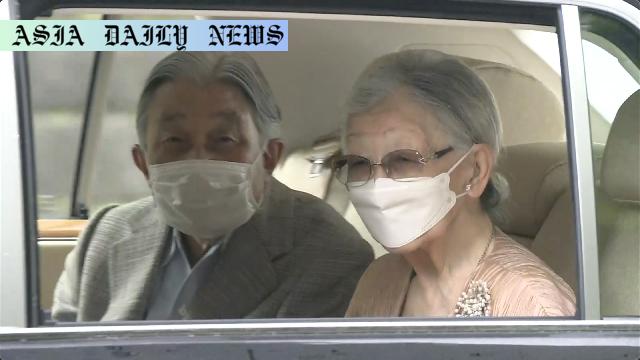Emperor Emeritus Akihito returns home accompanied by Empress Emerita Michiko after undergoing a heart examination for myocardial ischemia.
- Emperor Emeritus Akihito, aged 91, was released from a Tokyo hospital after undergoing evaluations for myocardial ischemia.
- His condition, a probable myocardial ischemia diagnosis, emerged during routine health checks but he reported no symptoms.
- His wife, Empress Emerita Michiko, visited him daily at the University of Tokyo Hospital.
- They returned together to their Akasaka Estate in Tokyo on Saturday morning.

Introduction to Emperor Emeritus’s Health Update
Japan’s 91-year-old Emperor Emeritus Akihito, a revered figure in the nation’s modern history, has returned home following a hospital stay in Tokyo. His recent visit to the University of Tokyo Hospital was prompted by a confirmed high probability of myocardial ischemia, a condition that restricts blood flow from coronary arteries to the heart muscle. Despite this finding, the Emperor Emeritus reportedly experienced no overt symptoms, underscoring the importance of proactive and routine medical examinations.
The Importance of Routine Health Checks in Older Adults
Routine health screenings, especially for individuals in their advanced years, are critical in detecting potential health-related risks before symptoms emerge. Emperor Emeritus Akihito’s case serves as a critical example. Though his myocardial ischemia diagnosis could have posed severe risks if left unchecked, early detection through medical examinations mitigated these challenges and ensured timely intervention. It is especially noteworthy that the Emperor Emeritus underwent these checks despite reporting no symptoms, proving the silent nature of many cardiac conditions.
The Role of Family and Emotional Support during Health Crises
Throughout his hospital stay, Empress Emerita Michiko exemplified the vital role of familial care in the recovery process. By visiting her husband daily and ensuring he remained in good spirits, she underscored the importance of emotional well-being alongside physical recovery. Their return together to the Akasaka Estate symbolizes not only the Emperor Emeritus’s triumph over a potentially severe condition but also the enduring values of marital devotion and strength during challenging times.
Closing Reflections on Emperor Emeritus Akihito’s Resilience
Emperor Emeritus Akihito’s recovery is celebrated not just as a testament to advancements in modern medicine but also as a moment of inspiration. For citizens of Japan and beyond, his resilience and steady dignity resonate powerfully. The continued presence of such key figures provides a reminder of prioritizing health, family support, and the enduring impact of leadership grounded in compassion and care. Returning to the Akasaka Estate symbolizes a harmonious chapter for a beloved leader, leaving behind a meaningful lesson on prioritizing health and inner courage.



Commentary
Reflections on the Emperor Emeritus’s Recovery
The recent health episode concerning Emperor Emeritus Akihito highlights several significant aspects, not only about his personal resilience but also broader implications regarding the health of aging populations. At 91 years old, undergoing regular evaluations and managing to recover from a condition like probable myocardial ischemia is an inspiring testament to the importance of proactive healthcare.
The Intersection of Leadership and Personal Health
Emperor Emeritus Akihito has been an enduring symbol of wisdom and humility for Japan. This episode, where he faced a potentially life-threatening medical condition, reiterates the importance of even the most prominent figures addressing their wellness with due diligence. Leaders like him lead by example, and his willingness to undergo routine health screenings can encourage others to follow suit, showcasing that no one is exempt from the necessity of health mindfulness.
The Power of Family and Emotional Resilience
The support extended by Empress Emerita Michiko is as touching as it is exemplary. Her presence at his side throughout his hospital stay highlights the indispensable role of emotional and familial backing in any recovery process. Acts like these transcend hierarchy or status, reminding us of the universal need for compassion, especially during difficult times. The public observance of such devotion between two influential figures only strengthens the cultural belief in the power of relationships.
Broader Insights and Lessons Drawn
Ultimately, the Emperor Emeritus’s recovery symbolizes not just his personal triumph but stands as a universal reminder of resilience, care, and the spirit of perseverance. It challenges us to confront health issues with vigilance and encourages societies to hold family bonds, care for one another, and uphold shared morale as central pillars. His experience becomes more than a news headline—it becomes a life-affirming lesson.